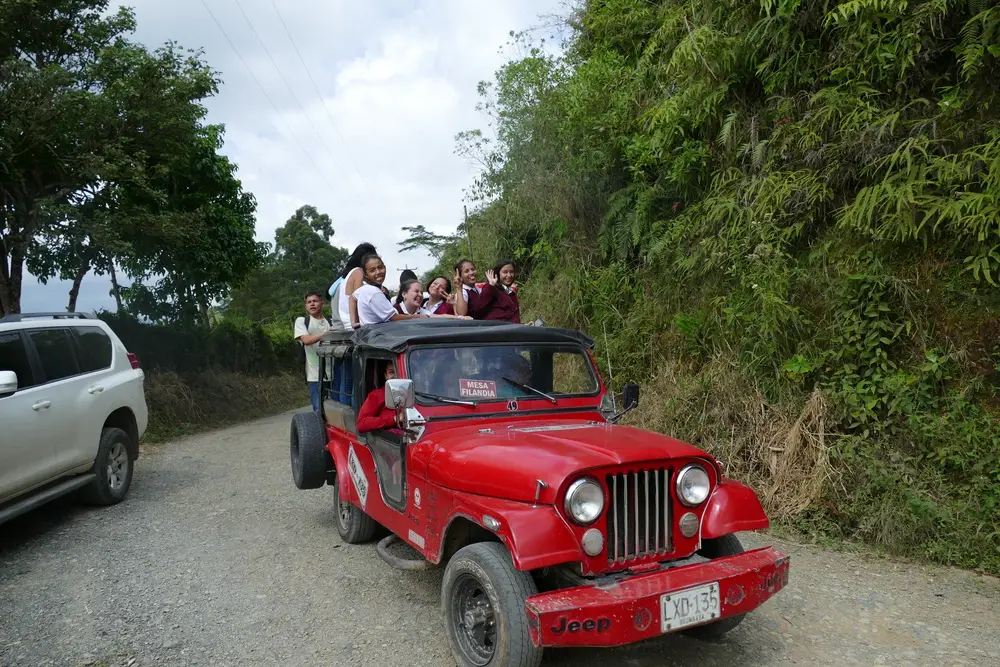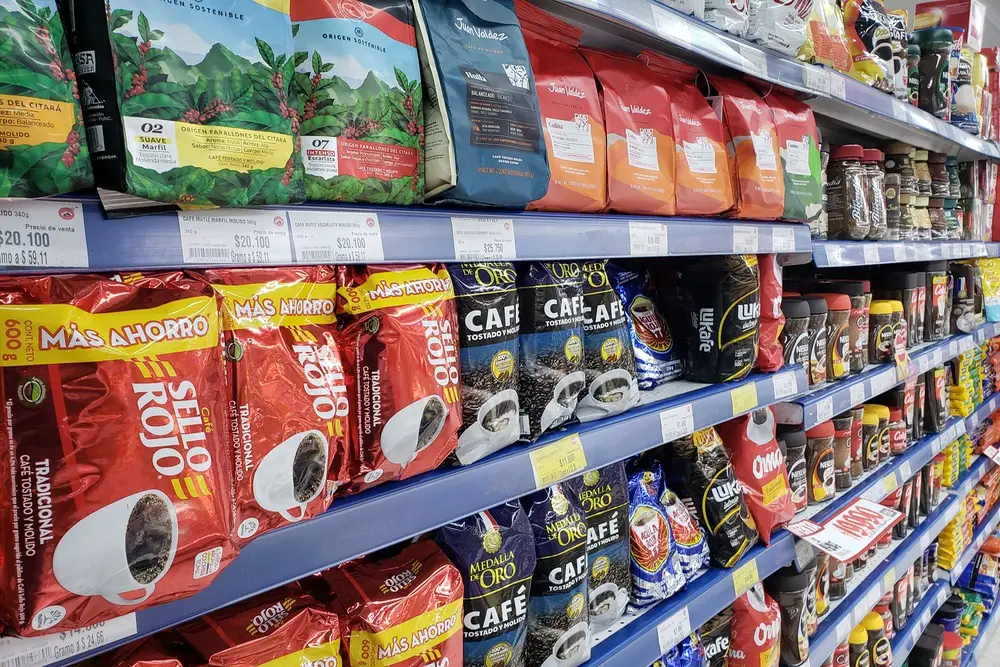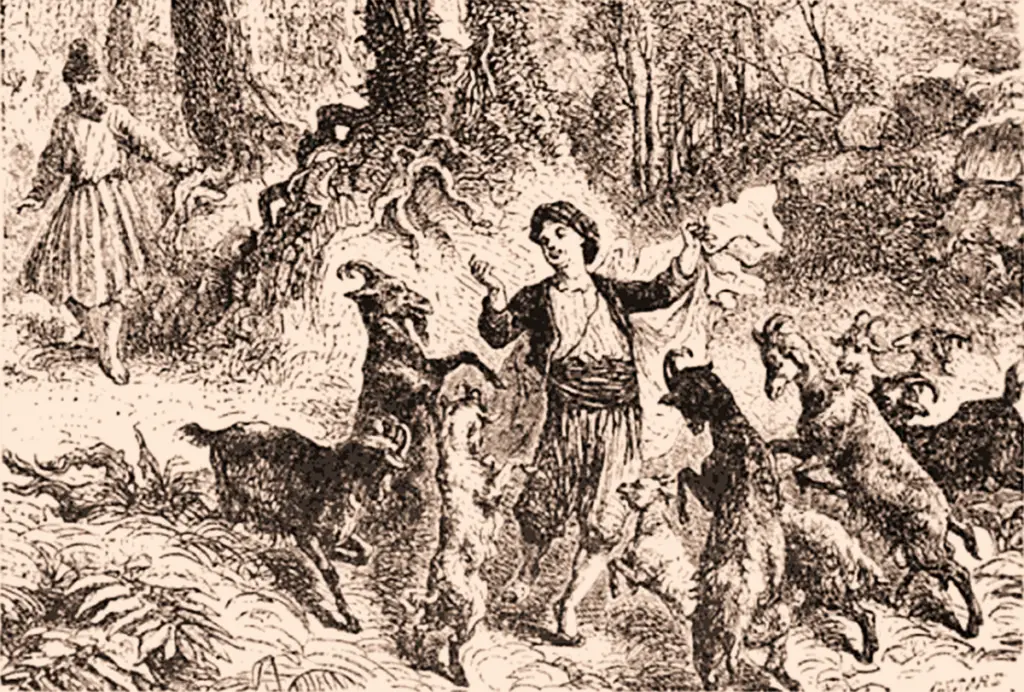The coffee sector’s active engagement with sustainability issues seems to be a relatively new phenomenon. Even more recent is the need to address recycling and waste.
In addition to the waste generated by the “Coffee to go” culture, the popularity of coffee pods creates mountains of waste that the traditional method of coffee preparation does not generate.
In addition to the problem of waste production, coffee companies are also addressing the issue of ethical sourcing. A key element is sourcing through “fair trade” schemes.
In this blog, we will show you how corporate social responsibility (Corporate Social Responsibility, CSR) is implemented in the coffee industry and present examples of companies with social initiatives.
Table of Contents
Social responsibility in the coffee industry
Since the 1980s, the oversupply on the international coffee markets has led to a sharp fall in prices. This has led to falling incomes and, as a result, made cheap production important to most of the dominant big coffee companies.
Coffee is grown primarily in the “coffee belt” of Central and South America, Africa and Asia, where poor working conditions and low wages are common.
The critical market situation had negative social effects. The working conditions of coffee farmers have deteriorated and many belong to the poorest sections of the population.
In recent decades, Western consumers’ awareness of the inhumane working conditions and exploitation of coffee farmers has greatly increased the general criticism of the pollution and ecological imbalance of coffee production.
At the same time, consumers in advanced industrialized countries began to make increasingly conscious purchasing decisions about social and ecological products.
As a result, CSR and sustainability have become more important for coffee companies. Customer satisfaction is indisputably a prerequisite for corporate success. CSR activities and programs aimed at improving environmental and social sustainability are relatively new. However, they have increased significantly in recent years.
However, the production of sustainable coffee and the implementation of specific programs are very costly and time-consuming. However, in order to remain competitive in the coffee market, such efforts are essential. This is especially true when a company intends to sell a high-priced, premium coffee product in the marketplace.
Why corporate social responsibility matters
Today, companies are increasingly recognizing the importance of aligning their business objectives with their CSR activities. A comprehensive CSR program can benefit both the organizations and the communities they serve.
Let’s look at 5 benefits that have an extraordinary effect:
Ethically made coffee
Certification schemes play an important role in creating an ethically conscious consumer market today. This is to ensure the protection of the communities and habitats that play such a vital role in coffee production.
If you choose Fairtrade coffee beans, Soil association by choosing Organic, UTZ and Rainforest Alliance certification, you are helping communities thrive by reducing the environmental impact of coffee production – two pillars of a good corporate social responsibility strategy.
Examples of social initiatives
Below are 4 examples of companies trying to play an active role in different communities through their company vision.
White Buffalo Coffee Co
This indigenous coffee company from Canada recognizes and encourages the importance of indigenous festivals as they align with its company values. Some important dates are:
National Day of Indigenous Peoples, June 21st
This is a day for all Canadians to recognize and celebrate the unique heritage, diverse cultures and outstanding contributions of the First Nations, Inuit and Métis.
Orange Shirt Day, September 30th
Orange Shirt Day commemorates the experience of boarding schools (a federal government and Catholic Church-led program aimed at eradicating Indigenous culture and forcibly reintegrating Indigenous children into white, European society) and honors the healing process of survivors and their families. In 2021, the Canadian government designated September 30 as National Truth and Reconciliation Day (National Truth other Reconciliation Day).
National Aboriginal Veterans Day, 8th November
National Indian Veterans Day was established to recognize the significant contributions First Nations, Inuit and Métis veterans have made in the service of Canada.
National and provincial assemblies of elders
The elders preserve the knowledge of their ancestors: traditional teachings, ceremonies and healing practices. These meetings help ensure their cultural continuity.
Pure fair-trade coffee
Originally from Belgium but also present in other countries, the company has a commitment to social responsibility and engages with local and global communities. They focus on 3 initiatives:
Trees for Schools (Trees4Schools).
Trees4Schools is the social enterprise initiative of Puro ‘s South Africa division. For every kilogram of puro sold Fairtrade or Fairtrade organic espresso coffee 2% is donated to buy and internationally protect rainforest areas in South America and plant Trees4Schools.
The goal of this initiative is to plant, care for and preserve trees on the premises of disadvantaged schools in Cape Town, South Africa. They are intended to provide shade and want to create green spaces to promote a stronger bond between young people and nature.
Borneo orangutans
In 2012, along with many other supporters of the World Land Trust, they helped buy and protect the Borneo rainforest in Malaysian Borneo in the north of the island “because they love orangutans and don’t like to see them homeless”.
The World Land Trust is an international conservation organization that protects the world’s most biologically important and threatened habitats.
Coffee farmers in the Congo
investing in projects with CDI Bwamanda to support 50,000 Fairtrade coffee farmers in the region. The money from their crops is reinvested in education, health and agricultural support.
You funded:
- 2 coffee processing machines, a peeling machine and a pulper
- 25 coffee wagons for transporting the coffee beans
- 10 hectares of coffee plants that are naturally more resistant to diseases
Kivu Noir coffee
at over 1,800 meters above sea level on the fertile volcanic shores of Lake Kivu in Rwanda, Kivu Noir is a Red Bourbon Arabica coffee touted as “the freshest in the world”.
Caferwa, the producer of Kivu Noir, has developed a business model that fosters a strong commitment to supporting and empowering local women and their communities, many of whom survived the Tutsi genocide.
With the income from coffee sales, Caferwa has built kindergartens for children living near the company’s farms, a classroom where farmers can learn new farming methods and responsibilities in the coffee supply chain, and an infirmary in Nkora where farmers can and their families have access to all the medicines and medical care they need.
Because the business model involves direct farm-to-customer trading, Kivu Noir is able to provide farmers with a significant portion of the sales proceeds compared to normal green coffee bean trading.
Starbucks – CAFE Practices
The acronym for Starbucks’ CSR initiative is Coffee and Farmer Equity (CAFE), a set of purchasing policies that ensure:
- All coffee purchased from Starbucks must meet the company’s quality standards
- It must be grown sustainably
- Support of the farmers
- Safe, fair and humane working conditions for the workers and decent living conditions must be guaranteed
However, it should be noted that the chain stores produce a large amount of other packaging waste: cartons, milk cartons, syrup bottles and similar waste. In addition, the stores produce a large amount of used coffee and food waste.
Nestle – Nespresso AAA program for sustainable quality
The program certifies that the coffee beans have been grown in a sustainable and ethical manner, considering factors such as environmental protection, social responsibility and economic viability.
The program covers all aspects of coffee production, from growing the coffee plants to processing and packaging the end product.
Nestle – Nespresso AAA Farmer Support Center
A program aimed at providing farmers with training and resources to improve crop yields and promote sustainable farming practices.
The program includes training in sustainable farming practices such as agroforestry and shade coffee, as well as technical support on issues such as pest control and plant nutrition. The program also gives farmers access to finance and market intelligence to help them improve their livelihoods and increase their income.
Green Mountain Coffee Roasters (GMCR) – Green Mountain Cares
Is a program that supports community development projects in coffee-growing regions.
The program focuses on providing education, healthcare and clean water to communities in need, while also promoting sustainable agricultural practices to help farmers improve their livelihoods.
The program also supports other community development projects such as B. Microfinance initiatives aimed at providing microcredit to farmers and entrepreneurs to help them start or expand their businesses.
Peet’s Coffee – Positive Cup
A program that certifies sustainably grown and harvested coffee.
The program aims to ensure that farmers receive a fair price for their beans and are not forced to sell their produce to criminal organizations.
In addition, the program promotes sustainable agricultural practices that protect the environment and conserve natural resources. The certification covers the entire supply chain, from farmer to roaster.
Positive Cup certification is awarded to coffee that meets certain standards, such as B. fair prices, fair working conditions and environmental compatibility. This certification also ensures that the coffee beans are grown in a manner that preserves biodiversity and protects the rights of workers and communities.
The Positive Cup program also helps farmers improve their livelihoods by providing training and resources to improve crop yields and promote sustainable farming practices.
This includes training in techniques such as agroforestry, shade coffee and water conservation.
Initiative against leaf rust in coffee
This program aims to combat the disease coffee leaf rust, which affects coffee crops in Latin America.
The initiative focuses on providing farmers with rust-resistant coffee varieties and training them in sustainable farming practices to increase crop yields and reduce the impact of the disease.
Coffee and climate initiative
This initiative aims to combat the impact of climate change on the coffee industry by promoting sustainable agricultural practices such as agroforestry and shade farming to improve resilience to extreme weather events and reduce greenhouse gas emissions.
Coffee for Peace initiative
The aim of this initiative is to promote peace and reconciliation in conflict-affected regions through sustainable coffee cultivation and trade. It provides training and support to farmers and promotes fair trade practices to help build a more peaceful and stable community.
Initiative women in coffee
This initiative focuses on promoting gender equality and empowering women in the coffee industry. This includes training and supporting women farmers and promoting fair trade and sustainable agricultural practices to support women in the sector.
Green Coffee Association (GCA)
A nonprofit, membership-based organization representing and supporting the specialty coffee industry in the United States.
The GCA provides information, education and resources to promote sustainability and social responsibility in the coffee industry and advocates for the interests of the specialty coffee industry with governments and other organizations.
Coffee Quality Institute (CQI)
A non-profit organization aiming to improve the quality of coffee beans and promote sustainable agricultural practices.
The CQI provides training and resources for farmers and certifies coffee farms that meet its quality and sustainability standards.
Specialty Coffee Association of America (SCAA)
A non-profit trade organization representing the specialty coffee industry in the United States.
The SCAA provides training and resources to support sustainable and socially responsible practices in the coffee industry and promotes the specialty coffee industry’s interests to governments and other organizations.
Coffee and community
A program to promote sustainable agriculture and community development in the coffee-growing regions. The program provides training and support for farmers on sustainable agricultural practices and promotes fair trade and organic coffee farming.
Coffee for education
A program to promote education and community development in the coffee-growing regions. The program provides scholarships and educational resources for children in coffee-growing communities and promotes fair trade and organic coffee farming.
Coffee and conservation
A program to promote sustainable agriculture and nature conservation in the coffee-growing regions.
The program provides training and support for farmers on sustainable agricultural practices and is also committed to preserving natural resources and biodiversity in coffee-growing regions.
Conclusion
Although most companies today want to act in an ethical, sustainable and environmentally responsible manner, it can be difficult and costly to develop, communicate and maintain a clear CSR strategy.
However, as we can see, there are cases that have a big impact and awareness at the point of purchase is also crucial so that consumers too can play a role in supporting social initiatives.



